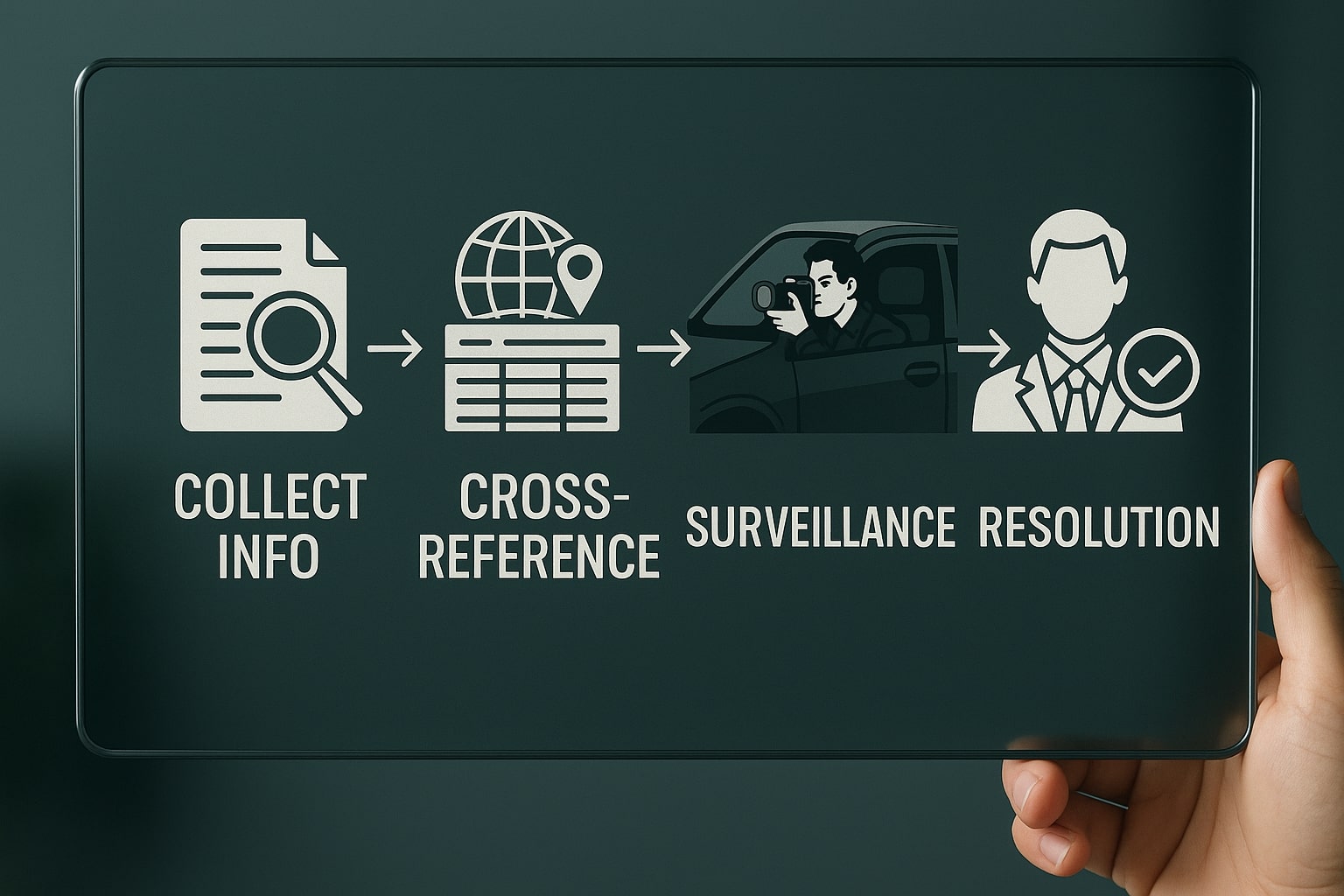Skip tracing isn’t just typing a name into a search bar—it’s a structured and strategic process:
- Collect Initial Data
Full name, last known address, phone numbers, social media accounts - Cross-Reference Databases
Utility bills, voting rolls, credit records, employment info - Field Investigation & Surveillance
Sometimes, surveillance services may be needed for on-the-ground confirmation. - Reporting & Resolution
Once located, the individual’s details are confirmed and shared with the client.
Skip tracing is especially powerful when paired with our background checks or factual investigations.
When Might You Need to Skip Tracing Services?
People turn to skip tracing for many reasons—both personal and professional:
- Debt recovery for unpaid loans or financial obligations
- Locating missing persons, including estranged family or friends
- Finding witnesses in court cases or insurance disputes
- Tracking down beneficiaries for wills or estates
- Uncovering scams or fraud cases
It’s particularly useful in situations where emotions run high, and traditional searching methods haven’t worked.
How SpouseBusters Can Help With Skip Tracing in Australia
At SpouseBusters, we take pride in delivering discreet, results-driven skip tracing services tailored to your needs.
Why Choose Us:
- Licensed private investigators
- Extensive access to Australian data sources
- Ethical practices with 100% confidentiality
- National reach — from Sydney to regional Australia
Whether you’re seeking a loved one or pursuing legal justice, our experienced skip tracers are ready to assist. Reach out for a confidential consultation today.
Frequently Asked Questions (FAQs)
1. Is skip tracing legal in Australia?
Yes, skip tracing is legal when performed by licensed investigators following privacy and data laws.
2. How long does skip tracing take?
It depends on the complexity of the case. Some may take a few days, others several weeks.
3. Can I skip tracing myself?
You can start with basic searches, but professional skip tracers have tools and access that the public does not.
4. What information do I need to begin a skip trace?
Full name, date of birth, last known address, and any identifying details are helpful.
5. Is skip tracing only for debts?
No. It’s also used for missing persons, legal processes, and even reconnecting with old contacts.
Conclusion
Skip tracing is more than just locating someone—it’s about finding answers, resolving issues, and sometimes, getting closure. With the right professionals by your side, you can navigate even the most complex situations with confidence.
If you’re wondering how skip tracing could help in your case, SpouseBusters is here to guide you every step of the way.











